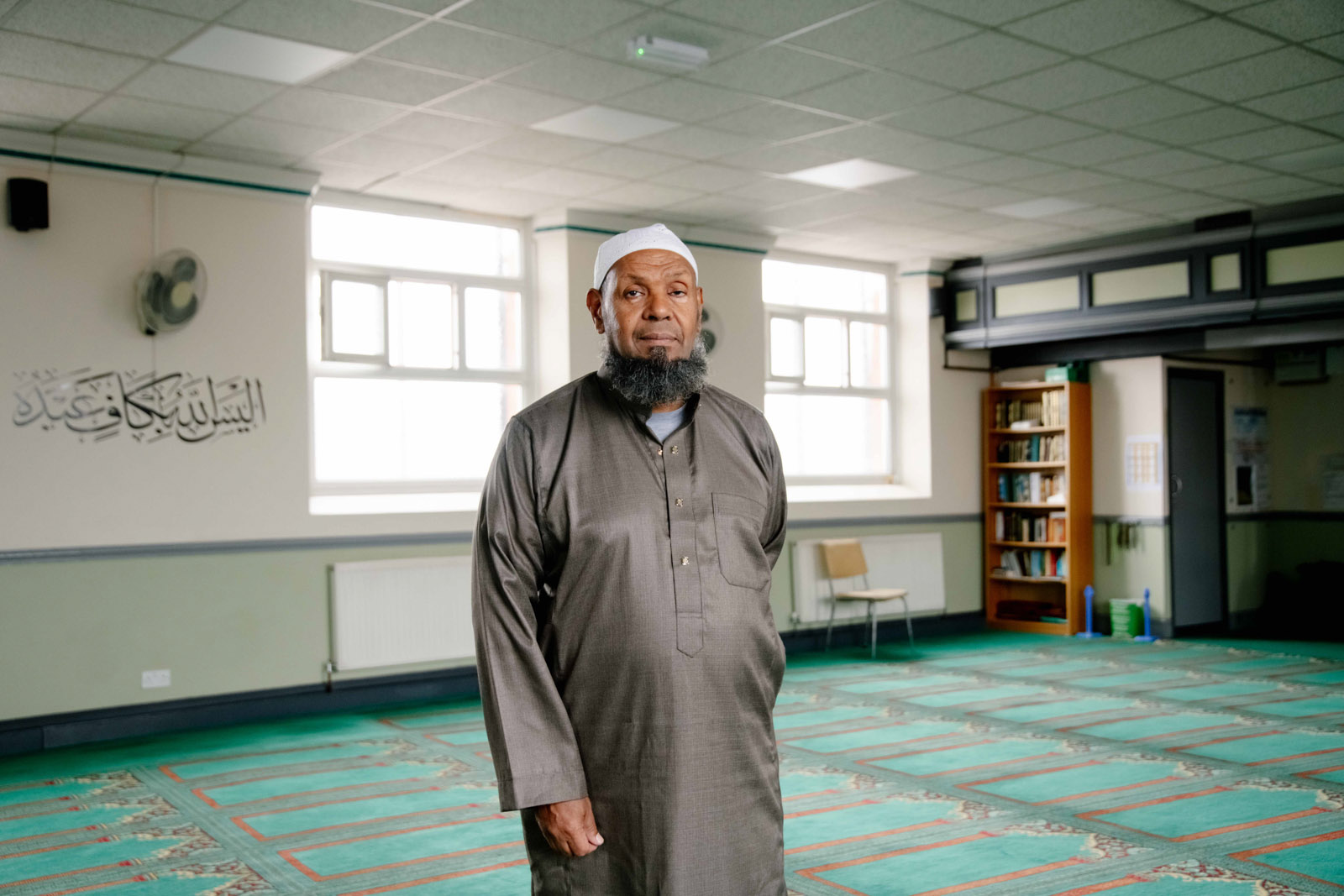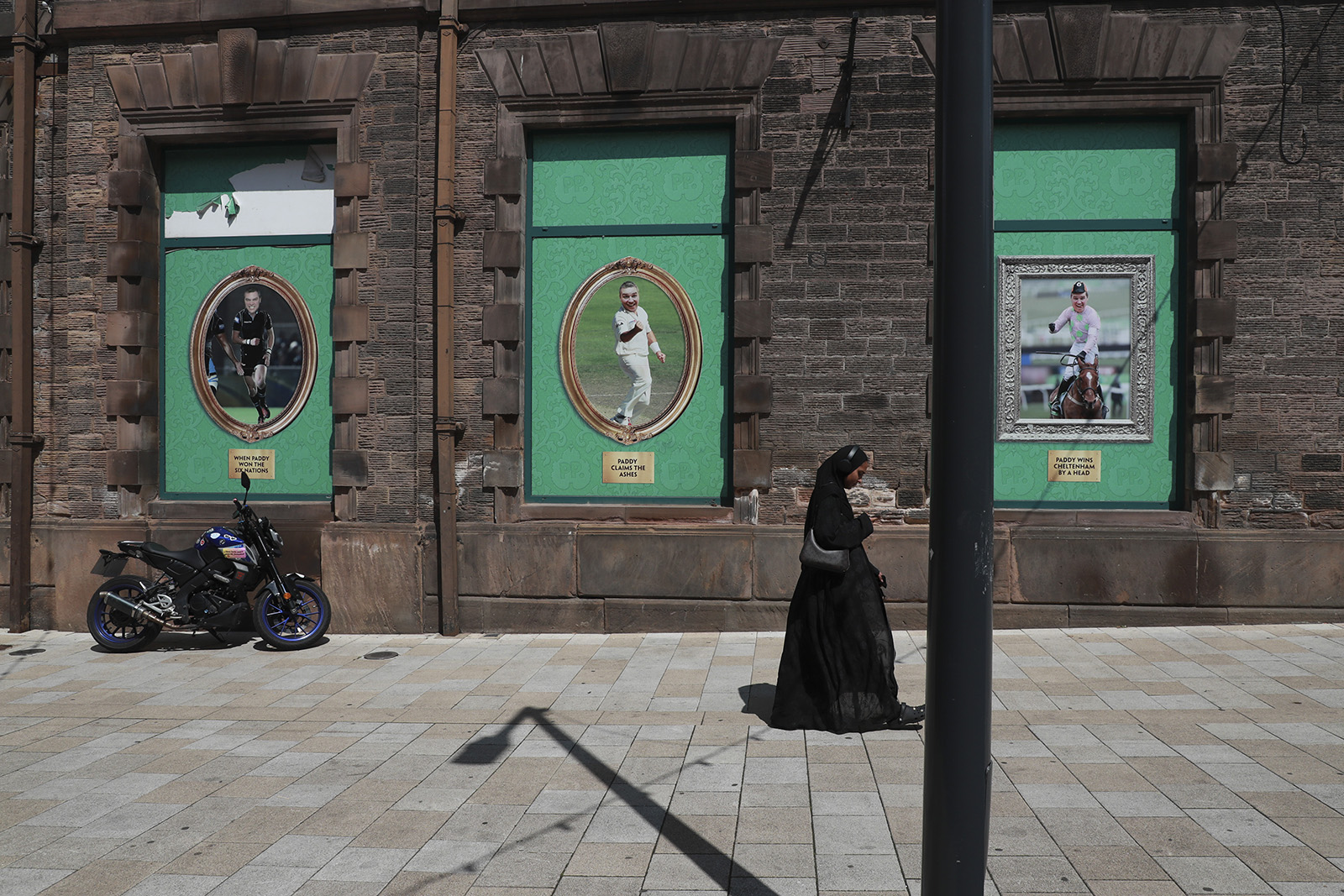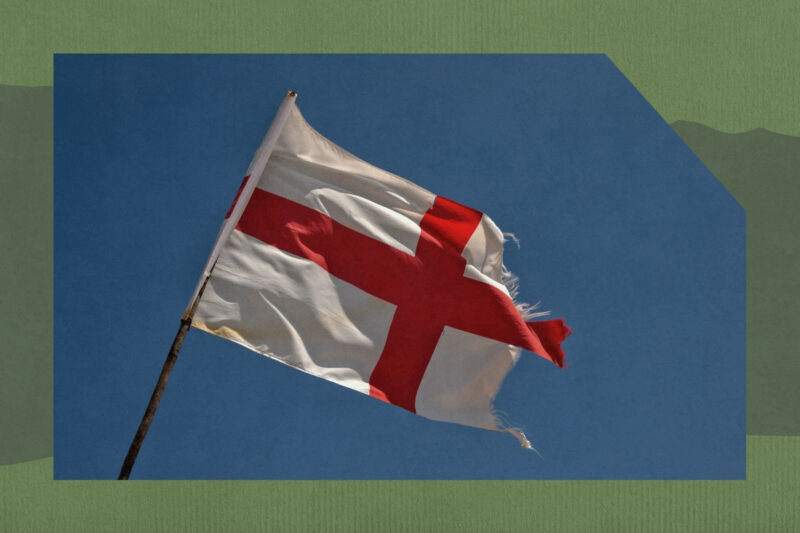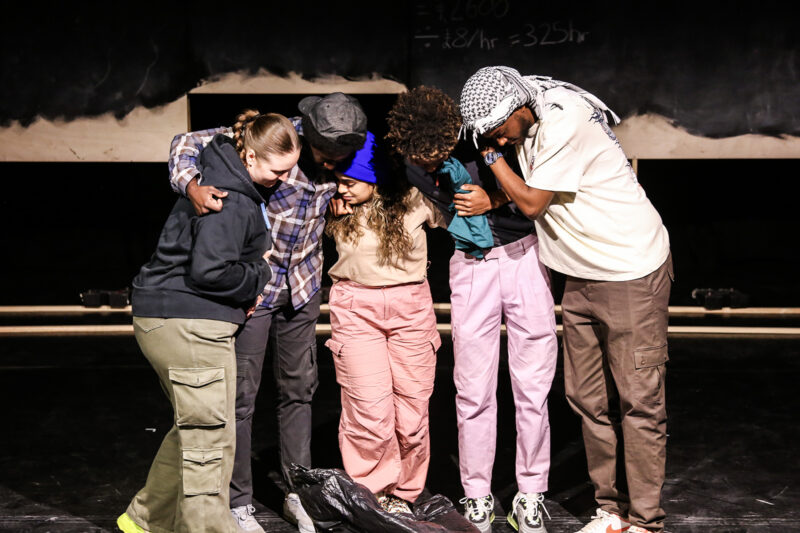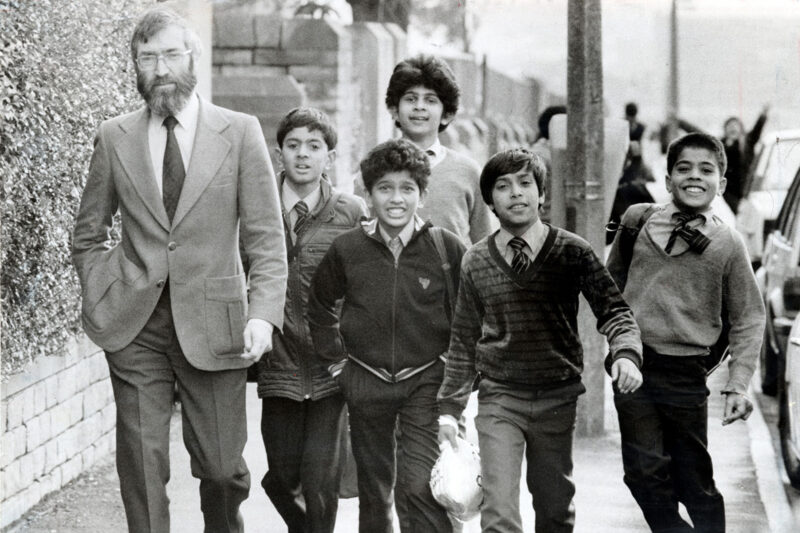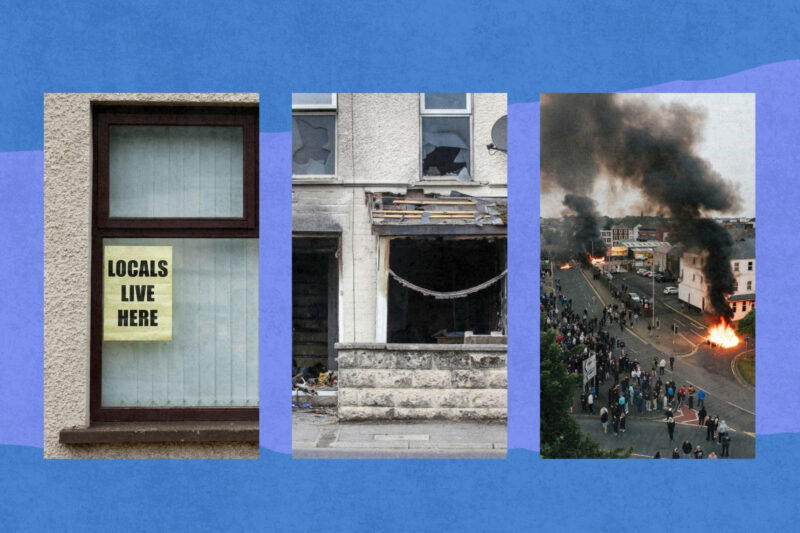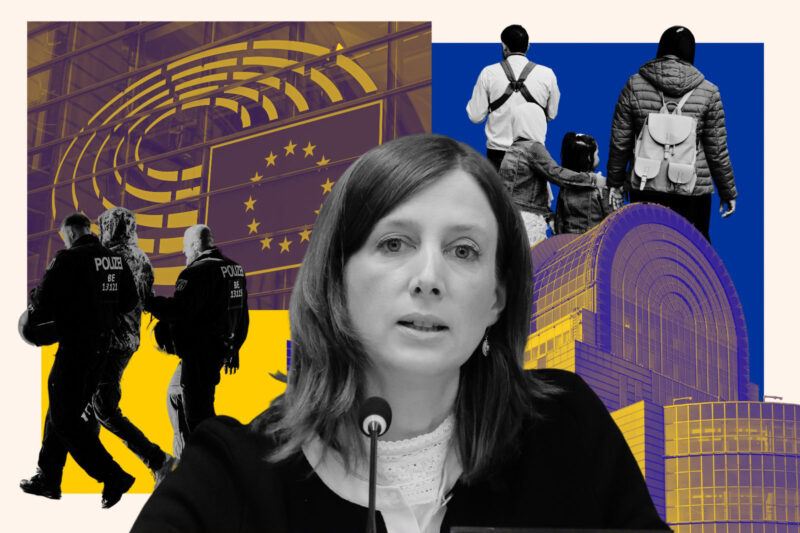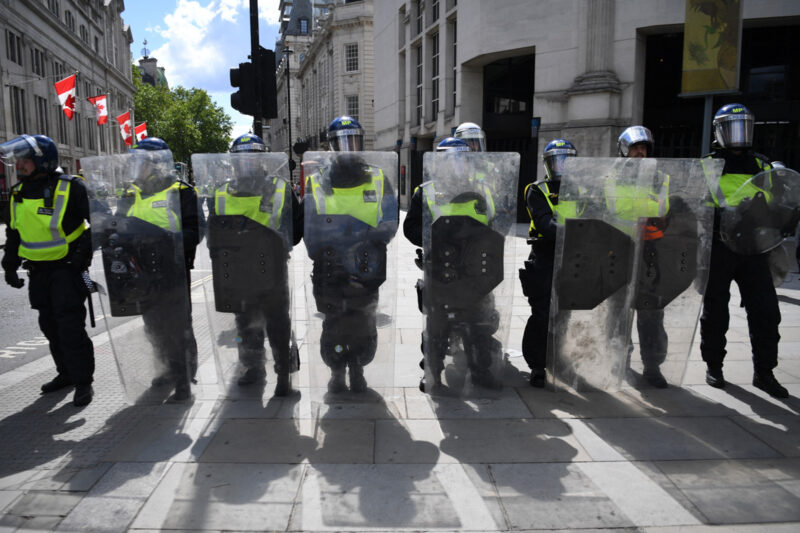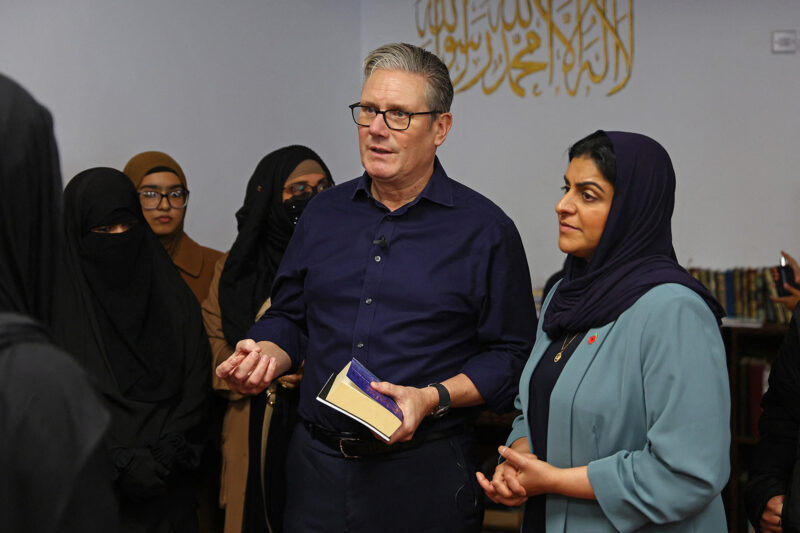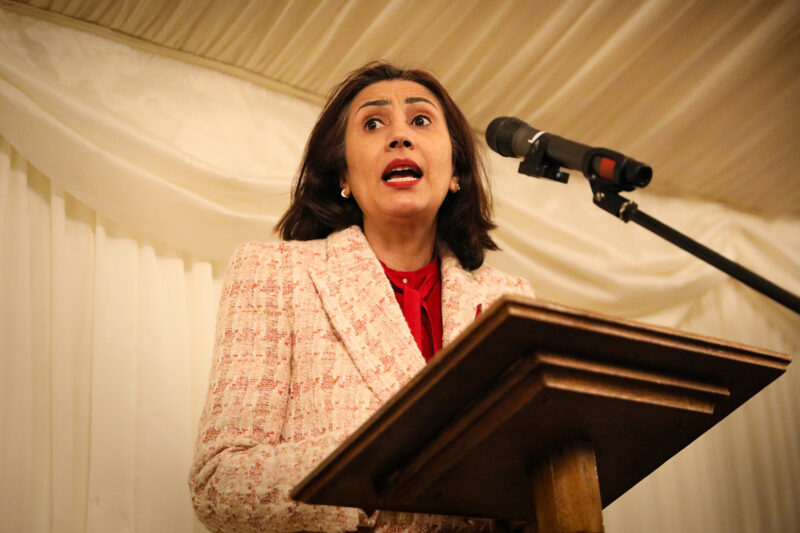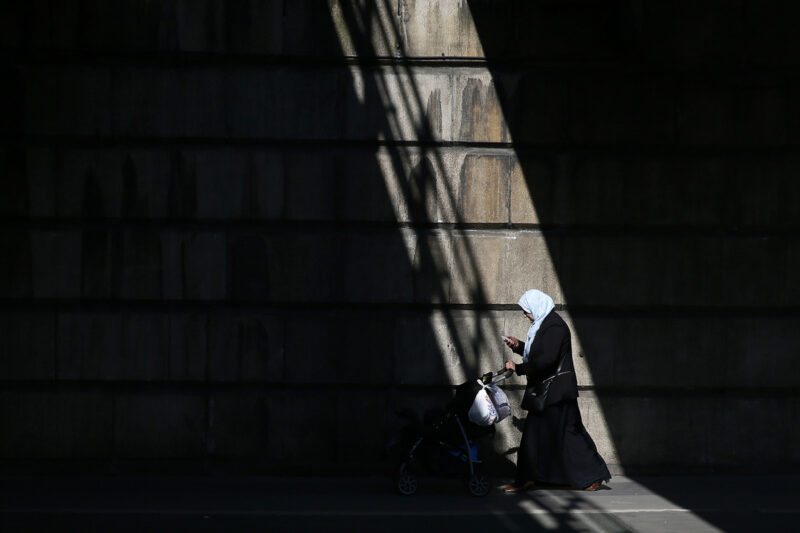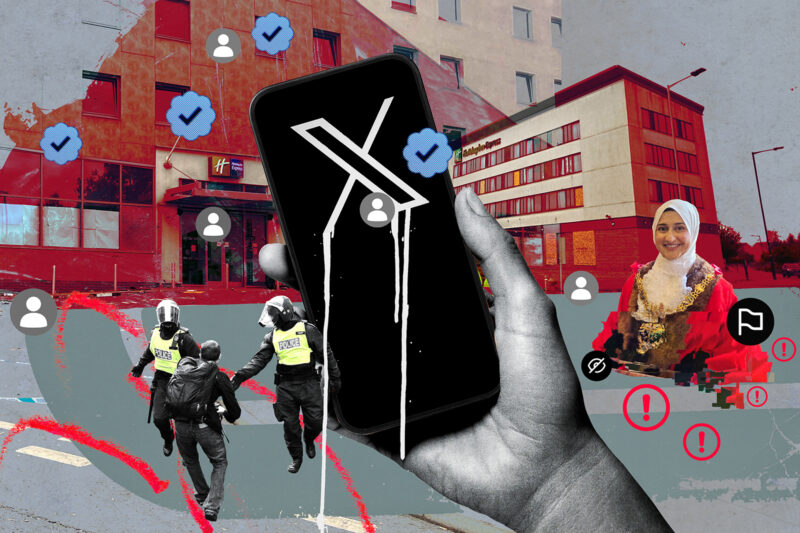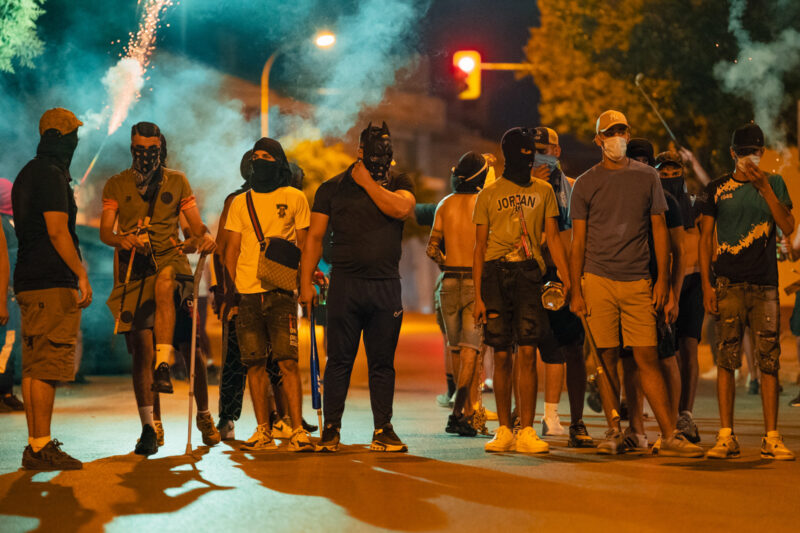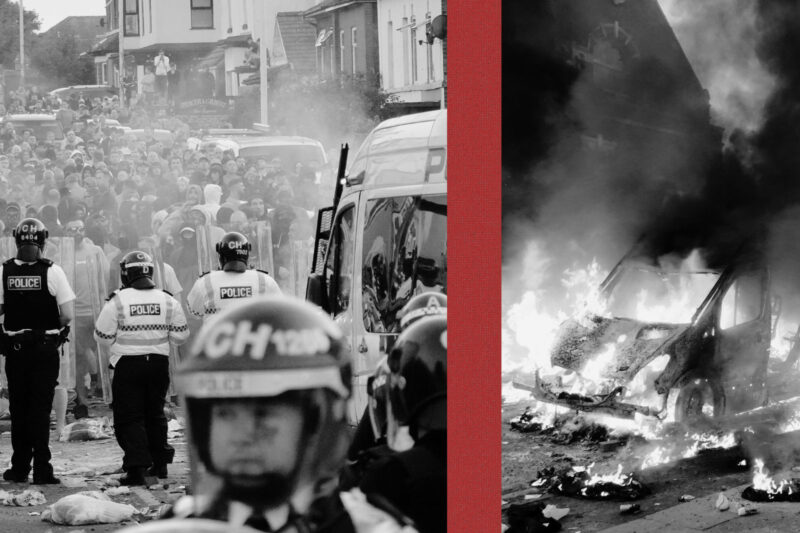Mosques around UK tighten security as anti-migrant protests continue

Islamic centres, including the mosque nearest to the Epping hotel at the centre of anti-immigration protests, speak of fears for their congregations
Mosques around the UK are tightening security measures as anti-immigration protests continue outside hotels.
The protests began in July after a man who was housed at the Bell Hotel in Epping, Essex, was accused of sexual assault, and continued after the high court granted Epping Forest council an interim injunction against the use of the building to accommodate people seeking asylum.
Fear of a repeat of last summer’s racist violence means that the Home Office is now paying for security staff to guard the Harlow Islamic Centre, which is the closest mosque to the Epping hotel.
“The person responsible for committing a crime should be punished accordingly,” said trustee Abdul Khaliq. “But it shouldn’t be put against people who are seeking refuge.”
Khaliq has been volunteering at the centre for more than 25 years and works by day as a cab driver. He once took a customer who was well known locally for posting anti-immigration messages online, but said he had not let the incident bother him.
When asked if mosque members had joined counter-protests, he said most were too busy. “We are working-class people,” he said. “We’re not people who can go out for a day or two and protest.”
More than 30 people draped in union jacks and St George’s crosses gathered near the Mercure Bristol Brigstow Hotel on 9 August, chanting: “Send them back.” They were dwarfed by a counter-protest of about 400 people, who responded: “Refugees are welcome here.”
Another demonstration of about 50 people that was met by 250 counter-protesters took place on Saturday in the city centre.
“We’ve never faced this type of insult before,” said Abdul Malik, a Bristol councillor and chair of the city’s Easton Jamia Masjid.
“It puts us in our place — that we are different. That no matter if people like me are born here and have invested a huge amount of time and energy in this country, it just takes a few idiots to emphasise that we don’t belong here. It makes me feel quite vulnerable.”
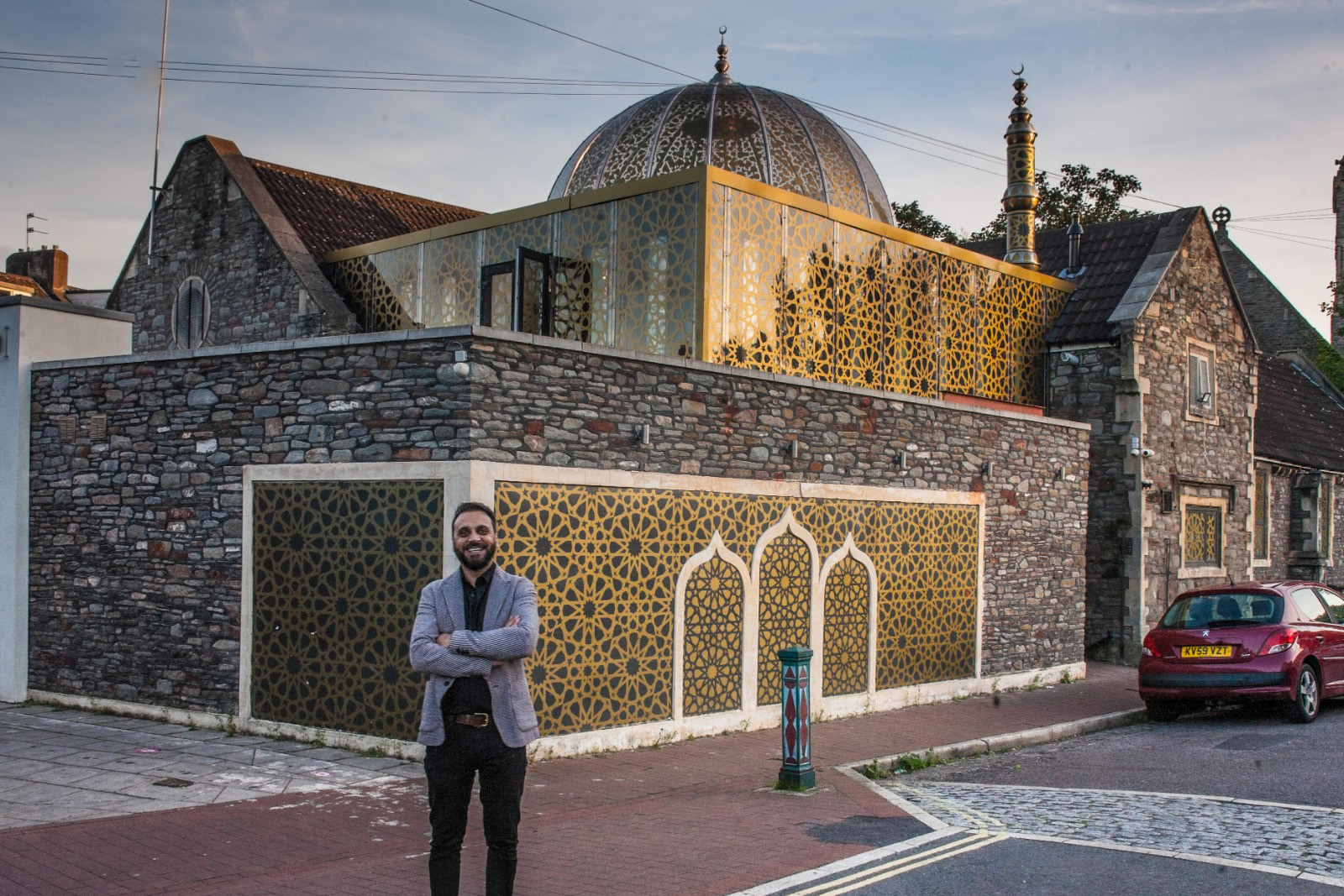
Although the mosque has security personnel and CCTV, installed after a bomb threat during last year’s riots, Malik said the protests remain a concern for worshippers, especially families and older people. “We are seeing people coming in worried,” he said.
He added: “Racism and Islamophobia do exist, and we do have a problem in this city as well. We have to be open to the fact that people do feel differently about migration.
“It’s important we hear that for what it is, even if it’s racism, because it needs to be addressed with a counter-narrative.
“I’m proud of Bristol’s history in welcoming diverse communities. The majority of people here want peace, safety and respect. They don’t want this type of hostility. These people that are so-called patriots, who say they represent Bristol. They don’t.”
Even members of mosques that are further away from anti-asylum protests have been left feeling fearful.
“We pay a lot of money for security, but the tension is still there,” said Fauzia Saeed, programme and partnership lead at the Goodge Street mosque in central London. “We’re worried we’ll be targeted.”
The mosque will be dedicating its Friday sermon this week to encouraging people to report hate crimes, with talks from local police. “It’s important for us to come together and start talking about Islamophobia, especially with the ladies,” she said. “As safety measures, we’ve told them to stay safe and go out in groups.”
But she added: “Our community is always standing together, even when the world is on fire.”
The Home Office invited mosques and Islamic centres to apply for help covering security costs earlier this year. It could not say this week how much had been given out under the scheme.
 Newsletter
Newsletter



